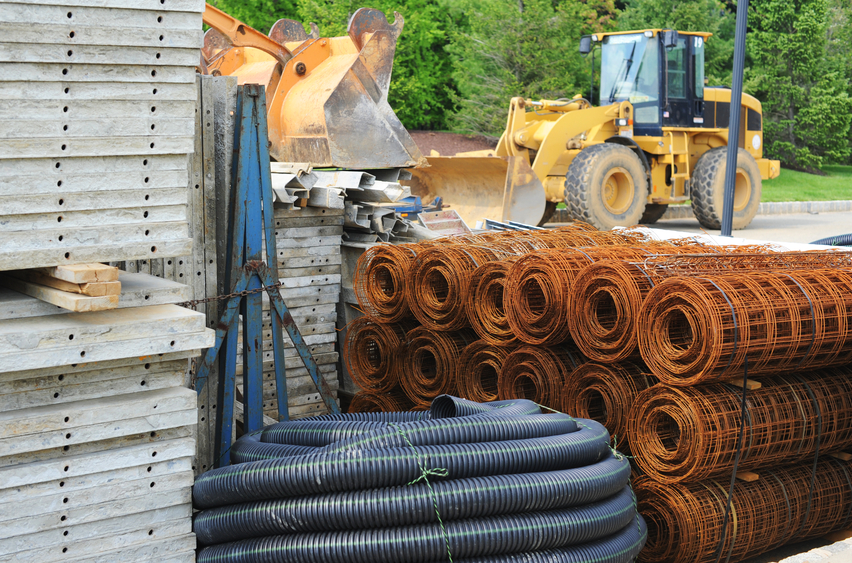Newfoundland and Labrador Material & Ethics/Regulatory 30 PDH Discount Package 1
Fundamentals of Gas Cutting and Welding (D06-002)
Material Properties and Corrosion (T06-001)
Structural Insulated Panels (SIPs) Used in Residential Wall Systems (T04-007)
Structures and Properties of Metals (T07-001)
General Principles of Engineering Ethics and Statutes for Newfoundland and Labrador Professional Engineers (NL3-001)

This online engineering PDH course provides an overview of the topics of metallurgy and metalworking.The course discusses the parameters, properties, metalworking processes, and identification methods of metal alloys.
Metallurgy is a domain of materials science and engineering that studies the physical and chemical behavior of metallic elements, their inter-metallic compounds, and their mixtures, known as alloys. Metallurgy is also the technology of metals: the way in which science is applied to the production and industrialization of metals, and the engineering of metal components for use in products for consumers and manufacturers.
This 4 PDH course is intended for material, mechanical, civil, and chemical engineers who are interested in exploring the basic principles of metallurgy and metalworking principles.
This P.Eng. continuing education course is intended to provide you with the following specific knowledge and skills:
- Learning about the history of metallurgy
- Learning about metal properties and alloys
- Familiarizing with mechanical properties of metals
- Learning about strength in metals
- Familiarizing with corrosion resistance
- Familiarizing with types of iron, steel, as well as nonferrous metals and alloys
- Understanding the basics of metalworking processes
- Learning about metal identification and testing methods
Upon successful completion of the quiz, print your Certificate of Completion instantly. (Note: if you are paying by check or money order, you will be able to print it after we receive your payment.) For your convenience, we will also email it to you. Please note that you can log in to your account at any time to access and print your Certificate of Completion.

This online engineering PDH course provides understanding of oxy-acetylene welding and cutting, as well as safety practices.
The oxy-fuel method of welding and cutting metals has tremendous power of creating, repairing and destroying the work of man. Oxy-fuel process uses heat created by combustion of fuel (most commonly acetylene) to melt the base material. In case of welding, two parts are brought to a molten condition along the line to be joined and fused together. Whereas in cutting, one piece of metal, when brought to a red heat is cut in two by an oxidizing flame. Oxy-acetylene cutting can be used to cut thicknesses from 2/8″ to up to 12″.
The oxy-acetylene process is extremely versatile and can be used for welding, cutting, heating, soldering and brazing. It can be used on any thickness of metal, however the operation can be difficult to master, and there are some serious safety issues owing to the extreme flammability of acetylene and the high pressure of the gas cylinders.
This 6 PDH online course is intended for industrial engineers, plant operators and managers, facility workers and supervisors, maintenance personnel and anyone who has to operate oxy-acetylene/propane cutting equipment for use in the repair and maintenance of plant and equipment.
This P.Eng. continuing education course is intended to provide you with the following specific knowledge and skills:
- Understanding the principles of oxy-acetylene process
- Learning about the various types of fuel gases and their potential applications
- Knowing the advantages and limitations of oxy-acetylene process
- Learning about oxy-gas equipment, cylinder types; their identification and storage
- Ability to use of ancillary equipment such as hoses, regulators, blowpipes and safety devices
- Learning about oxy-acetylene welding and cutting practices
- Operation, care and safe handling of oxy-acetylene equipment
- Learning about the various types of flames and their uses;
- Familiarizing with equipment assembly and testing procedures
- Familiarizing with lighting up and shutting down procedures
- Understanding the safe practices when using of oxy-acetylene equipment
In this professional engineering CEU course, you need to review the document titled "Fundamentals of Gas Welding & Cutting".
Upon successful completion of the quiz, print your Certificate of Completion instantly. (Note: if you are paying by check or money order, you will be able to print it after we receive your payment.) For your convenience, we will also email it to you. Please note that you can log in to your account at any time to access and print your Certificate of Completion.

This online engineering PDH course discusses the properties and behavior of materials, including stress and strain, thermal expansion, ductility, brittleness, creep, fatigue failure and more.
The purpose of this course is to briefly introduce several material properties and failure modes. A better understanding of these failure mechanisms will enable more appropriate decisions when selecting materials for a particular application. Even a basic knowledge and awareness can help design engineers to be better equipped in delaying or preventing the failure of a material or component.
Some general causes for failure are structural loading, wear, corrosion, and latent defects. Because most engineering materials contain discontinuities most metal fatigue cracks initiate from discontinuities in highly stressed regions of the component. Failure can occur in systems with moving or non-moving parts. In systems with moving parts, friction often leads to material degradation such as wear, and collisions between two components can result in surface or more extensive material damage. Systems with non-moving parts are also prone to material failure, especially when certain types of materials operate over a broad range of pressures and are subjected to extreme temperature changes or to high energy radiation environments.
This 6 PDH online course is applicable to mechanical, nuclear and industrial engineers, design professionals, facility managers and operators who are interested in gaining a better understanding of the properties and corrosion of material.
This P.Eng. continuing education course is intended to provide you with the following specific knowledge and skills:
- Understanding the terms as they relate to materials: mechanical stress and strain, hoop stress, thermal expansion, differential thermal expansion, thermal shock & residual stress
- Understanding factors which cause mechanical and thermal stress in a component and the consequences of exceeding stress limits in materials
- Understanding why heating and cool down rates are limited
- Defining the following properties of materials: ductility, brittleness & nil-ductility transition
- Learning the differences between ductile and brittle fracture
- Understanding why a material exhibiting a ductile/brittle transition temperature has operating limitations with respect to temperature
- Learning about creep as it relates to materials
- Understanding why a large shaft becomes deformed when at rest and why rolling a large shaft prior to operation reduces the deformation
- Understanding fatigue failure and work hardening
- Learning about the chemically induced damage to a material subjected to corrosive environment
- Understanding the effects of radiation on common materials such as metals, plastics and alloys
In this professional engineering CEU course, you need to review the technical document tilted, "Materials" (Volume 1) of the CNSC Training Course "Science & Reactor Fundamentals" which was extracted from Canteach knowledge repository (Doc# 20030301).
Upon successful completion of the quiz, print your Certificate of Completion instantly. (Note: if you are paying by check or money order, you will be able to print it after we receive your payment.) For your convenience, we will also email it to you. Please note that you can log in to your account at any time to access and print your Certificate of Completion.

This online engineering PDH course provides prescriptive requirements for the use of structural insulated panels (SIPs) in wall systems in the construction of residential structures. These provisions include definitions, span tables, material requirements, and other related information appropriate for use by engineers, home builders, design professionals, and building code officials.
The Prescriptive Method for Structural Insulated Panels (SIPs) Used in Wall Systems in Residential Construction (Prescriptive Method) provides prescriptive requirements to facilitate the use of SIPs in wall systems for the construction of one- and two-family dwellings. By providing prescriptive provisions for the construction of typical homes with SIP systems, the need for engineering can be eliminated or reduced for most applications.
This 4 PDH online course is applicable to engineers, design professionals and construction personnel who are interested in gaining a better understanding of the design and installation considerations of structural insulated panels.
This P.Eng. continuing education course is intended to provide you with the following specific knowledge and skills:
- Familiarizing with the SIP materials, sizes and shapes
- Understanding the SIP foundation, wall and header requirements
- Understanding SIP connection details
- Understanding the utility requirements associated with SIP wall systems
- Understanding the thermal guidelines associated with SIP wall systems
Upon successful completion of the quiz, print your Certificate of Completion instantly. (Note: if you are paying by check or money order, you will be able to print it after we receive your payment.) For your convenience, we will also email it to you. Please note that you can log in to your account at any time to access and print your Certificate of Completion.

The online engineering PDH course addresses two aspects of metals. The first part of this course deals with the basic structures of metals and how those structures are affected by various processes. In addition, it contains information on the various imperfections and defects that the metal may sustain and how they affect the metal. The second part contains information on metal properties which are considered when selecting material for engineering design purposes. Each of these properties contains a discussion on how the property is affected and the metal's application.
This 7 PDH online course is applicable to structural and mechanical engineers, construction and design personnel, technical staff and facility operators who are interested in gaining a better understanding of the structures and properties of metals.
This P.Eng. continuing education course is intended to provide you with the following specific knowledge and skills:
- Understanding bonding
- Learning about common lattice types
- Understanding grain structure and boundary
- Learning about polymorphism and alloys
- Knowing the imperfection in metals
- Learning about stress and strain and Young's
- Modulus Understanding stress-strain relationship
- Understanding the physical properties of materials
- Learning about working metals and corrosion
- Understanding hydrogen embrittlement
In this professional engineering CEU course, you need to review Modules 1 and 2, "Structures and Property of Metals" of the Department of Energy Publication DOE-HDBK-1017/1-93, "Material Science".
Upon successful completion of the quiz, print your Certificate of Completion instantly. (Note: if you are paying by check or money order, you will be able to print it after we receive your payment.) For your convenience, we will also email it to you. Please note that you can log in to your account at any time to access and print your Certificate of Completion.

This online engineering PDH ethics course presents the principles of engineering ethics and statutes for Newfoundland and Labrador Professional Engineers.
Engineering ethics is (1) the study of moral issues and decisions confronting individuals and organizations involved in engineering and (2) the study of related questions about moral conduct, character, ideals and relationships of peoples and organizations involved in technological development (Martin and Schinzinger, Ethics in Engineering).
This course will address the principles of engineering ethics that every engineer is expected to live by when practicing their profession. This course also provides an overview of PEGNL’s general statutes and regulatory laws. It will also present unique ethical studies randomly selected to demonstrate ethical challenges for professional engineers and alternatives to address these challenges.
This 3 PDH online course is applicable to Professional Engineers licensed in Newfoundland and Labrador and who are required to demonstrate continuing professional competency in ethical practice and regulatory learning as a condition of their license renewal.
This online course is intended to provide you with the following specific knowledge and skills:
- Understanding the definition of engineering ethics
- Learning about the important principles of the Engineer’s Professional Responsibility
- Gaining a general overview on PEGNL’s procedure of filing an allegation, its resolution by Registrar and its referral to Complaints Authorization Committee (CAC)
- Familiarizing with PEGNL’s general statutes and regulatory laws
- Understanding professional ethical practices through presenting realistic case studies
Upon successful completion of the quiz, print your Certificate of Completion instantly. (Note: if you are paying by check or money order, you will be able to print it after we receive your payment.) For your convenience, we will also email it to you. Please note that you can log in to your account at any time to access and print your Certificate of Completion.